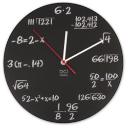Yahoo Answers is shutting down on May 4th, 2021 (Eastern Time) and beginning April 20th, 2021 (Eastern Time) the Yahoo Answers website will be in read-only mode. There will be no changes to other Yahoo properties or services, or your Yahoo account. You can find more information about the Yahoo Answers shutdown and how to download your data on this help page.
Trending News
Is pure mathematics more a game than a utility?
Having read Fermat's Last Theorem by Simon Singh, an account of how mathematician Andrew Wiles over a period of 40 years solved the riddle of ; x^n + y^n = z^n .... for no whole numbers >2, it makes me wonder at the usefulness of this solution. Don't get me wrong, the book is one of the best I've read, and I think Wiles is a brilliant mathematician. My question is more about the role of pure mathematics and how it relates to the world in general. For instance, much effort has been devoted to finding a formula for pin pointing prime numbers, yet I've heard of only one application for prime numbers, and if such a formula is found, it would render that one application in cryptography useless. I'm just a non-mathematician seeking enlightenment.
10 Answers
- MechomanLv 51 decade agoFavorite Answer
I also read that book.
In a way, you are right. Another excellent book to read is 'Order of the Primes' - this details the ongoing quest to prove the Riemann Hypothesis, a prediction relating to a formula for producing prime numbers.
The real insights however, are not simply the problems trying to be solved - in trying to solve these long-standing problems, mathematicians often develop new techniques that actually have a very real and useful application. Certainly in the case of trying to prove the Riemann Hypothesis, several mathematical approaches borne out of an attempt to solve have proved really useful in other branches of mathematics or science.
Complex numbers for example. A seemingly abstract theory as to the roots of √(-1). It turns out though that complex numbers are extremely useful in predicting electrical theory in circuits, among other things.
In the end, the proof of these long standing problems are often less interesting than the techniques that are produced in the path to their solution.
EDIT:- The fascination with prime numbers goes beyond trying to practically apply their usage - they are essentially the building blocks of the number system and ever since ancient Greece (and earlier!) they have always been of interest, often philosophically.
In mathematics, it is hard to accept that some things cannot be explained theoretically. Think about it like this - how irritating must it be to the mathematical community at large that all manner of physical phenomena can be rigorously explained with the language of mathematics, from explosions to galaxies to populations to machines - yet we have not yet found a way to predict the occurence of the fundamental numbers!!!!!!!!
- Anonymous5 years ago
I hate to tell you this, but there is not much. If your GPA is 3.5 or above, the Federal Government might have a job for you. If not, you need to go to grad school ASAP, study more math, or go into something else. I also have a degree in pure math, my GPA was 3.4. It took my 9 months to find a part time job as a clerk in a travel agency - no, I'm not kidding. Although I did not ever intend to teach, that's exactly where I ended up because I could not find any other kind of job with my degree at that time. Things might be different now, but I can't really say. I just know that I have never made a living wage since I got my BS and am now in grad school working on a masters in educational technology. If you want to pursue a masters or doctoroate in math, do it now while you can still remember the difficult classes you took. OR, if you want to go into teaching, you'll probably have to take the Praxis, and for that you will need to know Geometry and math history. Even if you don't have any education classes, you can pass the math subject area exam provided you do know Geometry, and a little history. Without the Geometry, you will not pass the thing - voice of experience here, just trying to help you out. If you have student loans, go to grad school and find a way to get a masters in something that will earn you a living wage. Otherwise, you will struggle with it unless you are very, VERY lucky. Sorry to burst your bubble, but I have been there and am still not making a living wage, but trying to get there by way of the Masters degree. Best wishes, good luck, check out positions with the Feds if you have a 3.5. Or, become an actuary, if you love statistics. The pay is great so I hear.
- Bob MLv 51 decade ago
Every time you find a law or pattern in physics, it creates new questions, but it also pushes the bounds of already known law. Before you can move on, you have to prove that what you currently believe to be true is true.
You might have a proven law that
1 + 1 = 2
Seems sturdy enough. But then someone says, but 1 + 1 does not always equal 2, I have one Apple and one Orange, if I add them together I do not have 2 of anything, if I make a smoothy drink then my 1 + 1 = 1.
So now to prove that 1 + 1 = 2 to enable you to move on to other equations, you have to study other areas around the equation. First you have to say that 1 + 1 = 2 is not a sum at all, it is a description and is not even a complete equation, it is a short form.
Because it really means 1 something + 1 same something = 2 quantities of that same something. Even this is not accurate.
1 water + 1 water = 1 water. Unless you say 1 Pint of water + 1 Pint of Water = 2 Pints of water.
The further you go the further away from the short form of the equation you get. But you are getting a more accurate description of the equation.
1 Oxygen atom + 2 Hydrogen atoms = ?
Well we know it doesn't equal 3 by now don't we?
Your man Simon Singh had a problem that with the knowledge available, the fixed structures of physics, that he could not prove that x^n + y^n = z^n within the laws as he knew them. So he spent time proving it. That solidified the laws around him and allows him to go on to the next natural problem.
Now here is one for you to do, work backwards. Go from x^n + y^n = z^n to a fuller description of this equation. Then give the equation for 'z'.
- Scythian1950Lv 71 decade ago
Let me be so bold to assert that physical reality follows mathematical fact. If physical reality follows any laws or rules at all, even if only approximately, then somewhere in mathematics it's described. Mathematics is all about the consequences of any set of laws or rules. We're not going to see examples of physical reality governed by certain laws and rules, and have outcomes not indicated by the mathematics of it. As an easy example, mathematics says that there are only 5 regular 3D polyhedron, thus we will NEVER find a 6th one in nature. So, to know mathematics is to know the physical universe, even though admittedly I would say about 95% of mathematics is hard to find anywhere in the natural world. Hence, the reason why "pure mathematics" seems irrelevant to real life.
As for Fermat's Last Theorem, the proof is actually a confirmation of the Taniyama-Shimura Conjecture, which suggests an important connection betweeen topology and number theory. Both topology and number theory play important roles in mathematical physics, so it can be argued that, ultimately, even Wiles' dififcult proof may have a connection with mathematical physics.
- How do you think about the answers? You can sign in to vote the answer.
- draculaLv 71 decade ago
The aim in pure mathematics is not practical applications, but intellectual satisfaction. Pure mathematics resembles fine arts - few people ask that a painting should be useful. (Unlike the fine arts it has generally accepted critical standards.) But the remarkable thing is that - almost despite itself - pure mathematics is useful. Let me give an example.
In the 1800s mathematicians expended a lot of energy on the wave equation; a partial differential equation arising from the physical properties of waves in a string or in a fluid. Despite the physical origin, the problem was one of pure mathematics: nobody could think of a practical use for waves. In 1864 Maxwell laid down a number of equations to describe electrical phenomena. A simple manipulations of these equations produces the wave equation. This led Maxwell to predict the existence of electrical waves. In 1888 Hertz confirmed Maxwell's predictions experimentally, detecting radio waves in the lab. In 1896 Marconi made the first radio transmission.
This sequence of events is typical of the way in which pure mathematics becomes useful. First, the pure mathematician playing about with a problem for the fun of it. Secondly, the theoretician, applying the mathematics but making no attempt to test his theory. Thirdly, the experimental scientist, confirming the theory but not developing any use for it. Finally the practical man, who delivers the goods to the waiting world..
The same sequence of events occur in the develeopment of the atomic power; or in matrix theory (used in engineering & economics); or in interegal equations.
Observe the time-scale. From the wave equation to Marconi: 150 years. From differential geometry to atomic bomb: 100 years. Integral equations took 30 years to get from the point where Courant and Hilbert developed them into a useful mathematical tool to the point where they became useful in quantam theory, and it has been many years after that before any practical applications came out of quantum theory. Nobody could've realised at the time that their mathematics would turn out to be needed a century or more later!
Does that mean all mathematics, however unimportant it may seem now, should be encouraged on the off chance that it will be just what the physicsts need in 2075?
The wave equation, differential geometry, integral equations: all of these were recognised as significant mathematics at the time they were developed. Mathematics has very interrelated structure, and development in one part can often affect other parts: this led to a certain body of mathematics being thought of as 'central' and it is in this centre that significant problems lie. Even totally new methods prove their significance by takeling central problems. Most mathematics that has turned out to be useful for practical applications has come from this central region.
However, some very beautiful and significant mathematics also turn out to be useless in practice, because the real world doesn't work that way. A certain theoritical physicist secured himself a mighty reputation on the basis of his deductions, on very general mathematical grounds, of a formula for the radius of the universe. It was a very impressive formula, liberally spattered with es, cs, hs and a few πs and √s for good measure. Being a theoretician, he never bothered to work it out numerically. It was several years before anybody had enough curiosity to substitute the numbers is it and work out the answer.
Ten Centimeters.
Source(s): Concepts of Modern Mathematics. - 1 decade ago
It's not just about finding solutions to pointless questions, it's about the journey to finding the answers. Along the way scientist just happen to stumble across a way to make cold fusion or travel at the speed of light possible. I doubt that will happen with pin pointing prime numbers but you never know!
- Anonymous1 decade ago
What begins looking like a game can often end up as a utility. For instance, in the beginning, group theory appeared to have no utility, so one might have called it a game. Eventually, it was seen that group theory leads to error-correcting codes, which is extremely useful in detecting and correcting corrupted data in communications. Most mathematics begins as "pure", but often with time finds application and becomes a "utility."
- Vikram PLv 51 decade ago
Its all about how you look at this!
When one thinks about how to prove x^n + y^n = z^n, he finds that conventional methods no longer help, so he seeks something different, a new approach! So he has to look for integration & extension of various concepts which the world know till date & with fusion of all related concepts develop a new concept! Who knows that may even change the way we look at this world!
So in my opinion it is more important to consider math as a tool to explore the unknown, we all are curious for knowing the unknown, don't you agree :) Even if one fails to prove something , it surely helps him in learning new things, so as per my opinion that "new" learning experience is something which lures mathematicians.
For your second part related to prime:
I think you should have a look at following question which exhibits formula to find nth prime, does this means we can no longer use RSA (or Internet) ! The answer is No! The strength of cryptography is in computational difficulty so as you can see even that formula is too complex for computer to calculate!
http://answers.yahoo.com/question/index?qid=200903...
Hope this helps :)
- MadhukarLv 71 decade ago
No it is the foundation of applied mathematics which has applications in practically all fields like physics, chemistry, biology, economics, financial analysis, statistics as applied to quality control in industries, etc.
- BhaskarLv 41 decade ago
yes, mathematics is more of a game. an intellectual game. though its applications are interesting, it is not to be regarded as a branch of science created for the use of other branches. it is an independent science, though often motivated by problems in other sciences. asking about the uses of mathematics, it is like asking about the uses of music. its applications are subordinate. the main goals of mathematics is not to solve problems in other fields. mathematics is the search for beauty in reasoning. as Albert Einstein aptly put it, it is the 'poetry of logical ideas'.








